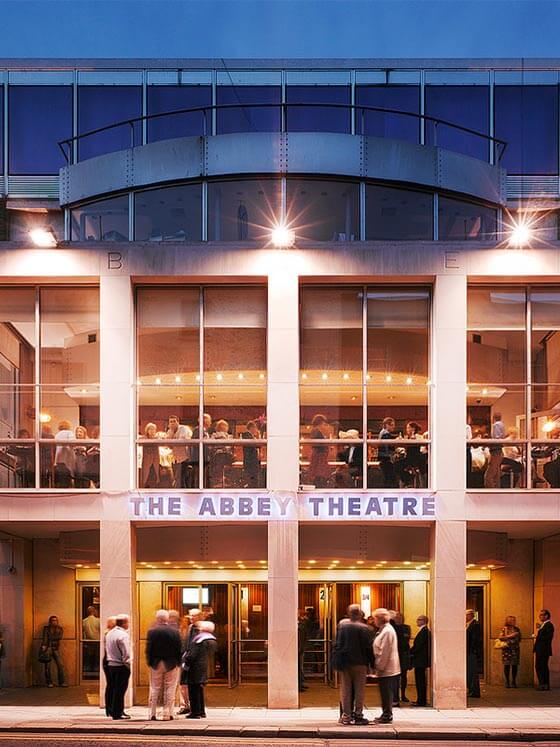11th January 2019
On Tuesday, 8th January 2019, the Abbey Theatre invited signatories of the letter addressed to Minister for Culture, Heritage and the Gaeltacht, Josepha Madigan, TD, regarding the direction of the Theatre, to meet to discuss the issues raised. Representatives of the signatories made contact with the Abbey Theatre yesterday, and arrangements are now being put in place to commence a dialogue.
We want to acknowledge the breadth of discussion in the media in recent days. We are listening attentively and with respect to all viewpoints, and are carefully considering the complex issues raised in the letter, particularly around rates of pay. This is something that the Theatre is already addressing in its contracts for co-productions in 2019, and which has been the subject of discussion with the Arts Council in recent months. The Abbey Theatre is acutely aware of the precarious nature of those working in theatre as freelancers. The significant concerns raised may well need a sector-wide dialogue that goes beyond the Abbey Theatre and the signatories.
The Abbey Theatre pays the actors it directly employs on terms and conditions, agreed with Irish Equity, the actors’ union. In presentation or in-association arrangements, the Abbey Theatre does not set the rate of pay. That has always been the prerogative of the producing companies. We propose that this be reviewed as part of the dialogue.
The Abbey Theatre’s employment contracts for 2018 show that 116 actors were directly employed, both on our stages and on tour. This is in line with the 2016 figures, which, as a year that marked the Centenary, was a particularly high benchmark.
The Abbey Theatre believes passionately in its fundamental role as a producing theatre. In 2019, the Abbey Theatre will self-produce seven shows (one in partnership, led by the Abbey Theatre, with Soho Theatre, London) on the Abbey stages. These productions will include five world premieres.
The Abbey Theatre has always co-produced and presented work. We have increased those opportunities, while maintaining our principal role as a producing theatre. Over the past two years, alongside our own productions, this has allowed us to work with major independent Irish companies. It has allowed our audiences to experience extraordinary productions, and the Abbey Theatre has been instrumental in helping a number of shows develop, or remount and subsequently tour. Co-productions and presentations ensure the Abbey Theatre is learning from its colleagues, and those colleagues also benefit from the skills and knowledge of the Abbey Theatre staff.
While this increased level of production has resulted in shorter runs in some cases, it is also important to note that the duration of some show runs has been extended compared to previous years, through touring and remounts.
This balanced programme of work derives from both a creative and financial imperative. Like theatres around the world, the Abbey Theatre has had to adapt to changing situations. The traditional producing model – exclusively self-made work and playing for extended runs – is increasingly difficult to sustain. By expanding our production model to include co-production and presentations, the Abbey Theatre is providing more employment opportunities for more freelancers than before. This further opening up of the Abbey Theatre has been welcomed by many artists, companies and, in increasing numbers, audiences. The 2018 attendance figure of 127,263 at the Abbey Theatre is the highest since 2010.
As the recipient of, by far, the largest theatre grant from the Arts Council, we have a responsibility to all of Ireland’s theatre makers. The Abbey Theatre must be a home for theatre makers at all stages of their career and, as the national theatre, the terms and conditions they work under should reflect the status of a national theatre.
We value the contribution of our freelance theatre colleagues to the Abbey Theatre – they are a creative and collaborative force, among the best in the world. We look forward to meeting with representatives of the signatories of the open letter, and coming to a deeper understanding that will, hopefully, lead to a better and more resilient theatre community for all.




